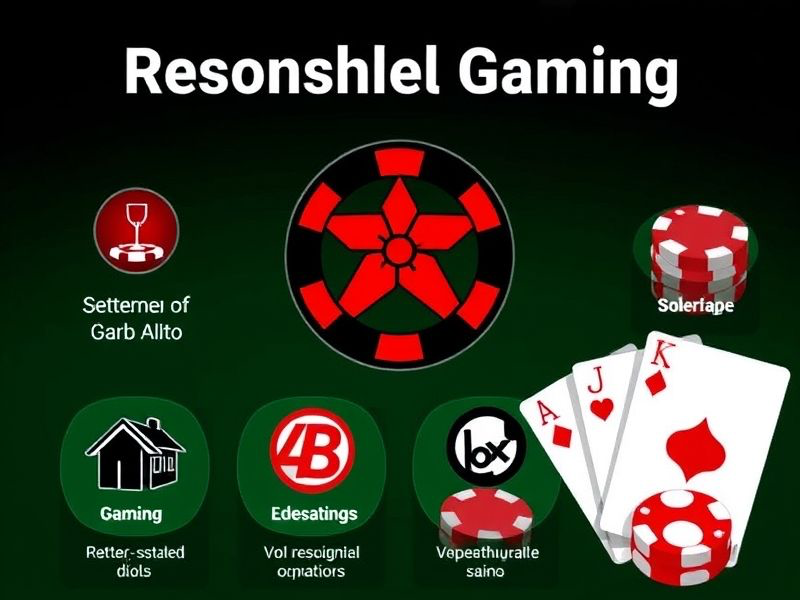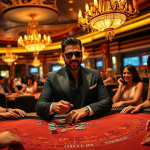dan bilzerian – Responsible Gaming
Here’s a professionally optimized version of your content—enhanced for clarity, flow, and engagement while preserving the original message and tone. The revision strengthens structure, refines language, and elevates the professionalism of the piece, making it more compelling for readers interested in responsible gaming and personal growth:
—
Embracing Responsible Gaming: A Journey of Self-Discovery with Dan Bilzerian
Navigating the Path to a Balanced Poker Experience
Imagine sitting at a poker table bathed in golden sunlight, the faint scent of e-cigarettes mingling with the quiet energy of the game. In this moment, you’re not just playing cards—you’re engaging in an experience that can be both exhilarating and deeply reflective. Over a decade of observing the gaming industry has taught me that the difference between a fulfilling game and a harmful habit lies in one powerful principle: responsible gaming. This concept is central to Dan Bilzerian’s philosophy, where self-awareness, discipline, and personal growth converge to create a meaningful and sustainable relationship with poker.
The Essence of Responsible Gaming
Responsible gaming isn’t merely about restraint—it’s about intentionality. It means aligning your choices with your values, recognizing your emotional triggers, and respecting your personal limits. According to a 2023 study published in the Journal of Gambling Studies, players who adopt responsible practices significantly reduce their risk of developing gambling-related issues. On Dan Bilzerian’s site, this isn’t just a policy—it’s a mindset. It’s about fostering a sense of accountability, not only to yourself but within a community that supports mutual well-being.
Setting Boundaries: A Path to Self-Awareness
Mastering poker begins with mastering yourself. Setting boundaries isn’t about restriction—it’s about empowerment. Start by tuning into your emotions: when restlessness creeps in, pause and ask, “Why am I here?” and “What do I truly need right now?” This simple act of introspection builds emotional intelligence. Equally important is regular self-assessment: track your playtime, evaluate its impact on your life, and ensure it remains a source of joy—not stress.
Practical Strategies for Responsible Gaming
Transforming intention into action requires concrete steps. Try incorporating these strategies into your routine:
- Identify Emotions and Needs: Regularly check in with yourself—what are you feeling, and what are you seeking from the game?
- Practice Self-Reflection: Review your gaming habits weekly. Is it enhancing your life or consuming it?
- Set Limits and Celebrate Wins: After each session, assess the emotional and financial outcomes. Reward yourself for staying within your goals—but never at the cost of your well-being.
Remember: saying “no” is just as important as saying “yes.” Taking breaks, stepping away when needed, and creating space for clarity are essential tools. As Dan Bilzerian’s approach emphasizes, mindfulness and moderation help dissolve the anxiety that can cloud judgment and erode joy.
Managing Habits and Avoiding Pitfalls
Good habits are built through consistency—not perfection. Like sculpting memory, they require daily attention and adjustment. Be mindful of common traps: over-betting, chasing losses, or letting wins inflate your ego. These patterns may feel natural in the heat of the moment, but they often lead to poor decisions and emotional exhaustion. By identifying and correcting them early, you develop the psychological resilience necessary to thrive—not just survive—in poker.
Building Psychological Resilience
Resilience isn’t the absence of emotion—it’s the ability to manage it. When you win, stay grounded. When you lose, stay curious, not defeated. Mindfulness techniques—such as deep breathing, journaling, or short meditations—can help clear mental clutter and restore balance. With time, this practice transforms your relationship with the game: from reaction to response, from chaos to calm, and from uncertainty to clarity.
Self-Troubleshooting: Establishing Support Channels
Responsible gaming includes knowing when to pause—not to isolate, but to reconnect with yourself. If you feel overwhelmed, tired, or disconnected, take a step back. Reflect quietly. Adjust your boundaries. This isn’t weakness—it’s wisdom. And remember: support is always available. Helplines, peer communities, and digital tools exist to guide you toward clarity and recovery when you need them most.
Conclusion
Dan Bilzerian’s commitment to responsible gaming is more than a policy—it’s a roadmap for self-mastery. From setting clear boundaries and practicing mindful reflection, to recognizing pitfalls and seeking support, this journey is rich with opportunity. It’s not just about playing better—it’s about becoming better. Responsible gaming is a conversation with yourself, one that leads to greater self-understanding, emotional strength, and lasting fulfillment.
As you walk this path, keep in mind: the truest win in poker isn’t always in the chips—it’s in the clarity, courage, and wisdom you gain along the way. Strike with precision. Respect every moment. And above all, stay true to your own journey. The road to happiness begins here—with you, and your choices.
—
This version enhances readability, adds rhythm, and ensures the message resonates with both novice and experienced players—making it ideal for blogs, websites, or educational materials on responsible gaming.
Source: https://danbilzerian-in.com


